
Warming Swindon homes since 2008
We’re proud to be Heat Geek Accredited and Vaillant Installers, bringing expert heat pump advice and installation to homes across Swindon and Wiltshire.
These accreditations mean our engineers have completed advanced training in low-temperature heating system design, so every heat pump we fit is done properly, from performance to efficiency. As approved installers of Vaillant, Viessmann, and Worcester Bosch heat pumps, we only work with trusted names known for reliability and smart technology.
Whether you’re looking to cut energy bills, reduce your carbon footprint, or future-proof your home with low-carbon heating, our team is here with honest advice and high-quality workmanship you can rely on.
Why choose CentraHeat for your heat pump installation? Because we care about getting it right, first time.
CentraHeat’s heat pump range includes the Vaillant aroTHERM, Viessmann Vitocal, and Worcester Bosch Compress 5800i. Ideal for homes across Swindon & Wiltshire, these systems offer reliable, energy-efficient heating with options to suit a variety of property sizes and layouts. Whether you’re after compact, quiet performance or smart control and high output, we’ll help you choose the right low-carbon solution for your home.
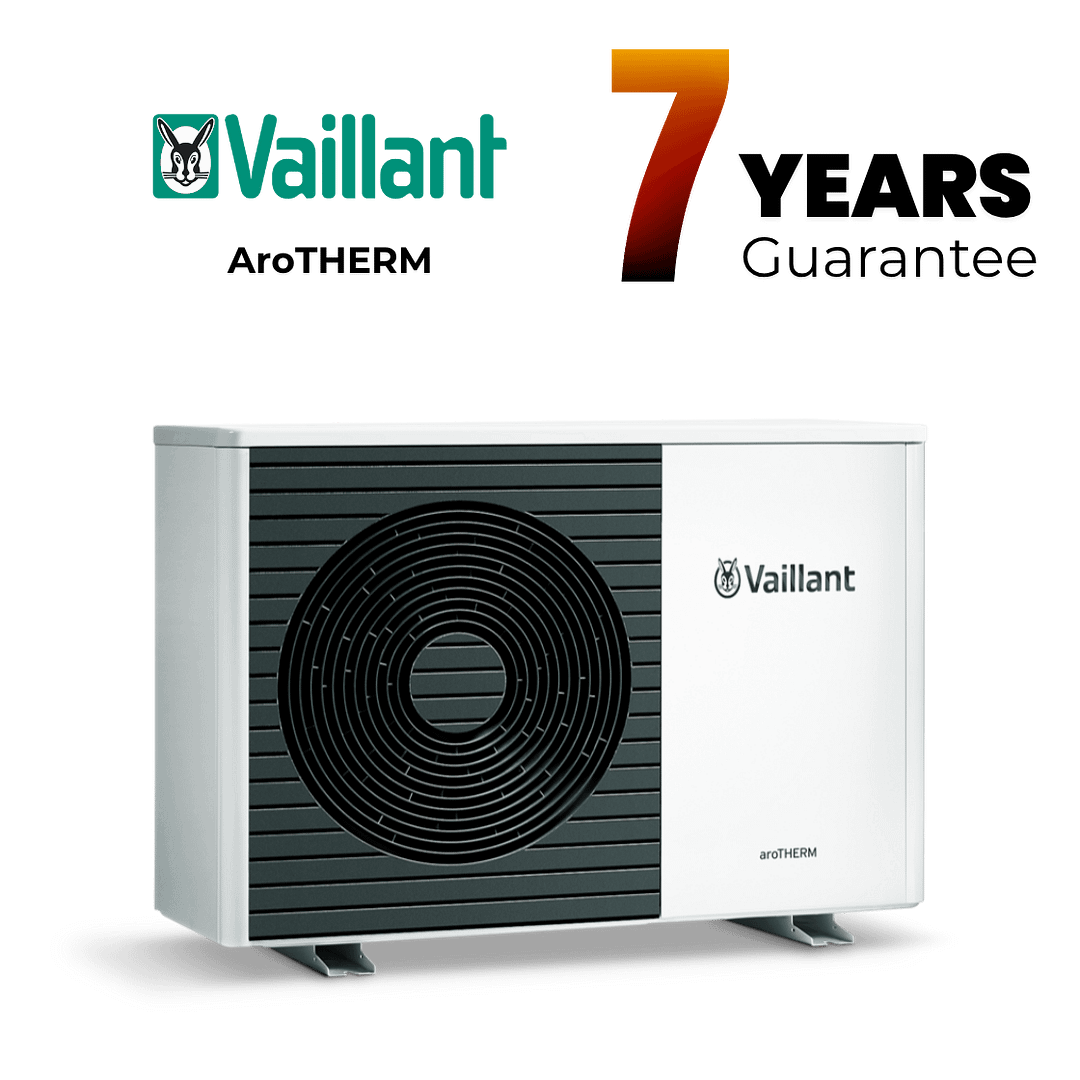
A low carbon heating and hot water solution. Future-proof thanks to the most cutting-edge heat pump technology with natural refrigerant.
Available in the following outputs: 3.5kw, 5kW, 7kW, 10kW and 12kW.
Ideal for retro-fit and new building.
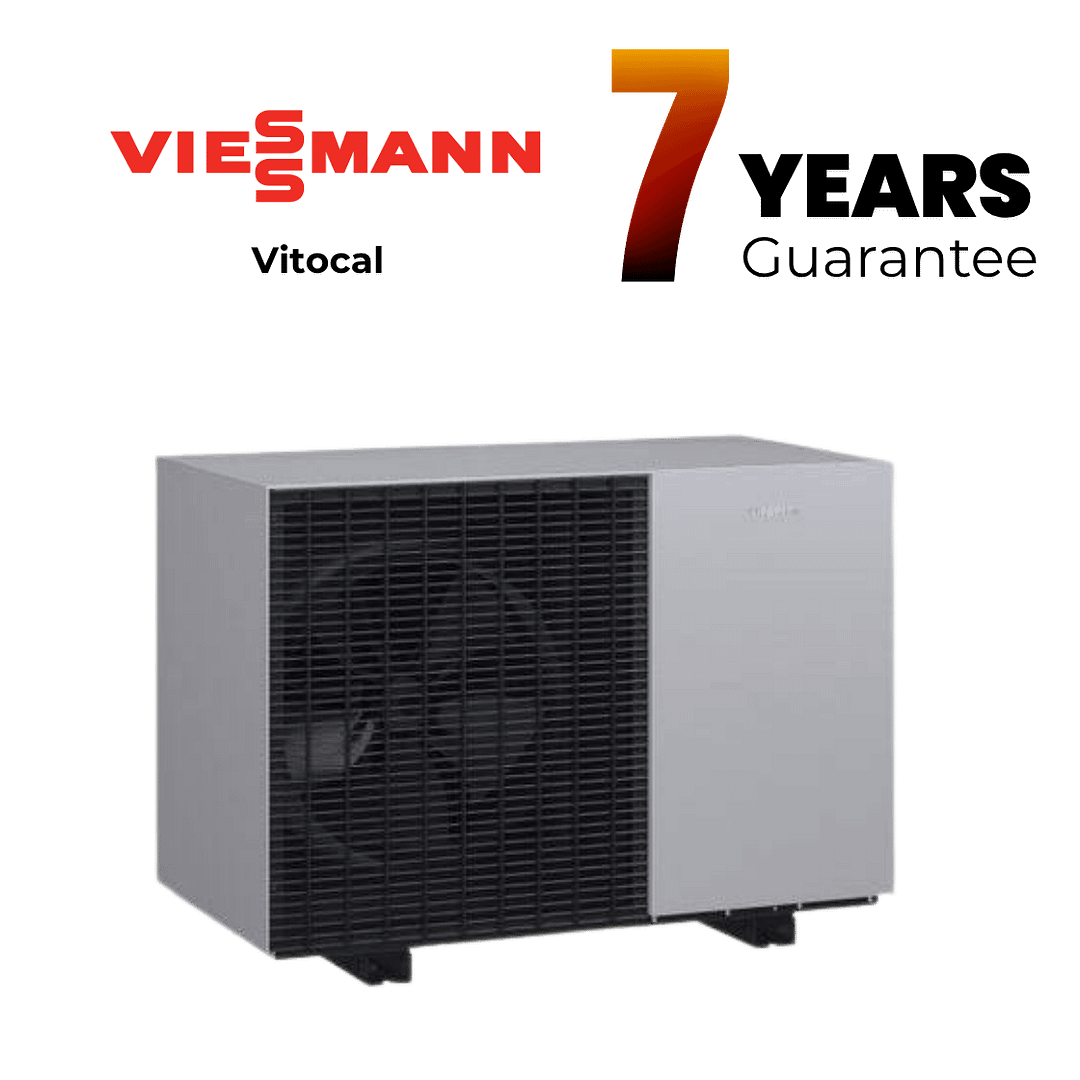
Advanced inverter-driven compressor ensures exceptional energy efficiency. With a COP of up to 5.0, it delivers high performance and significant energy savings. Versatile system compatibility, ideal for radiators, underfloor heating, and fan coil units. Intuitive smartphone app and smart home integration. Delivers hot water up to 70°C, meeting modern heating demands and preparing for future low-carbon standards.
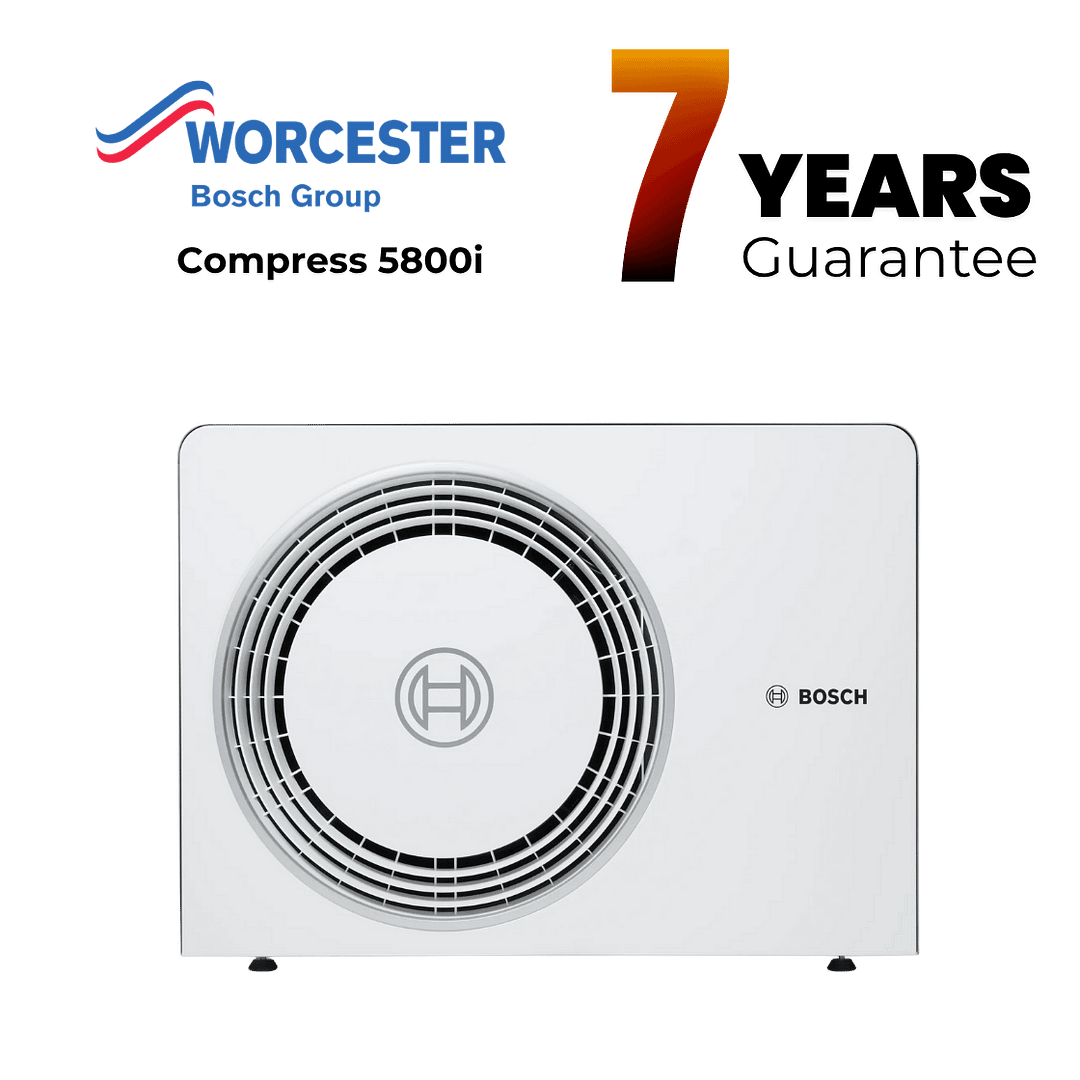
A highly efficient low carbon heating and hot water solution. Designed with advanced R290 refrigerant technology for quiet and powerful performance. Available in the following outputs: 4kW, 5kW, 7kW, 10kW and 12kW.Perfect for both retrofit installations and new build properties. High flow temperatures up to 75°C. Compact, quiet, and installer-friendly design. Eligible for the Boiler Upgrade Scheme Grant.
Tell us a bit about your home and we’ll give you a free estimate in less than 2 minutes
One of our experts will visit to measure your homes heat loss and check what’s needed to for maximum efficiency.
We’ll send you a clear, no-jargon quote so you know exactly what to expect.
Our friendly team will install your new heat pump with care and attention.

As Heat Geek Accredited Installers, we commit to continuous training to stay ahead of the latest heating technologies, system designs, and installation best practices.
Choosing a Heat Geek accredited installer means your home is in expert hands. The training is incredibly in-depth and goes far beyond standard qualifications, giving you the peace of mind that your heating system will be designed and installed to the very highest standards.


Warming Swindon homes since 2008
As Heat Geek accredited installers and part of Vaillant’s trusted partner network, our team is fully trained to install and care for a range of high-performance systems, from the aroTHERM plus to the aroTHERM split and air-to-water models.
If you’ve already had a heat pump fitted, keeping it serviced annually is key to ensuring top efficiency, reducing running costs, and keeping your manufacturer warranty valid.
We know how to get the best out of your system, whether it’s a brand new install or a routine service visit. If you’re looking for trusted advice, professional support, and reliable workmanship, you’re in safe hands with RCA.

The Vaillant aroTHERM Split is a smart, space-saving heat pump that delivers excellent performance without compromising on quality. Designed for flexibility, it’s ideal for a wide range of homes, whether you’re upgrading your current system or building new.
This split system separates the indoor and outdoor units, making it perfect for properties where space or placement is limited. With quiet operation, high efficiency (A+++), and outputs up to 12kW, it’s a reliable and future-ready choice for eco-conscious homeowners.
Built by one of the most trusted names in heating, the aroTHERM Split offers all the benefits of renewable energy in a compact, high-performing design.

The Worcester Bosch Compress 5800i AW is a compact, efficient heat pump that brings reliable, low-carbon heating to homes without compromising on performance. Designed with simplicity and flexibility in mind, it’s a great choice whether you’re replacing an old boiler or taking your first step into renewable energy.
This monobloc system combines both indoor and outdoor functions into one sleek, space-saving unit, ideal for homes where installation space is limited. With quiet operation, A+++ energy ratings, and outputs of 4kW, 5kW, or 7kW, it’s a smart option for smaller to medium-sized properties looking to stay warm, efficiently.
Engineered by Worcester Bosc, one of the UK’s most trusted names in home heating, the Compress 5800i AW delivers dependable comfort and long-term savings in a future-ready package.

The Viessmann Vitocal 150-A is a powerful, ultra-efficient heat pump designed to suit the demands of modern homes, whether you’re upgrading from a traditional boiler or installing in a new-build.
This monobloc system houses all key components in a single compact unit, making it quick to install and ideal for properties with limited indoor space. With quiet operation, impressive A+++ energy ratings, and outputs available in 6kW and 10kW, it’s a brilliant solution for keeping your home warm and sustainable all year round.
Built by Viessmann, a leading name in high-performance German engineering, the Vitocal 150-A blends low running costs, smart control, and long-term peace of mind into one sleek package.
At Centra Heat, we’re proud to offer a full range of Worcester Bosch heating solutions to suit every home. For oil properties, the Greenstar Heatslave II is available as both internal and external combi boilers, while the Danesmoor system models are ideal for medium to large homes and can be installed externally or in kitchen and utility spaces. For larger homes or commercial properties with higher hot water demands, the Danesmoor regular oil boilers deliver reliable performance.
For gas customers, we also install the latest Worcester Bosch gas boilers, including combi, system, and regular options — all designed for efficiency, reliability, and comfort. Whether you’re upgrading your current system or installing a brand-new one, we have a Worcester Bosch boiler to meet your needs.
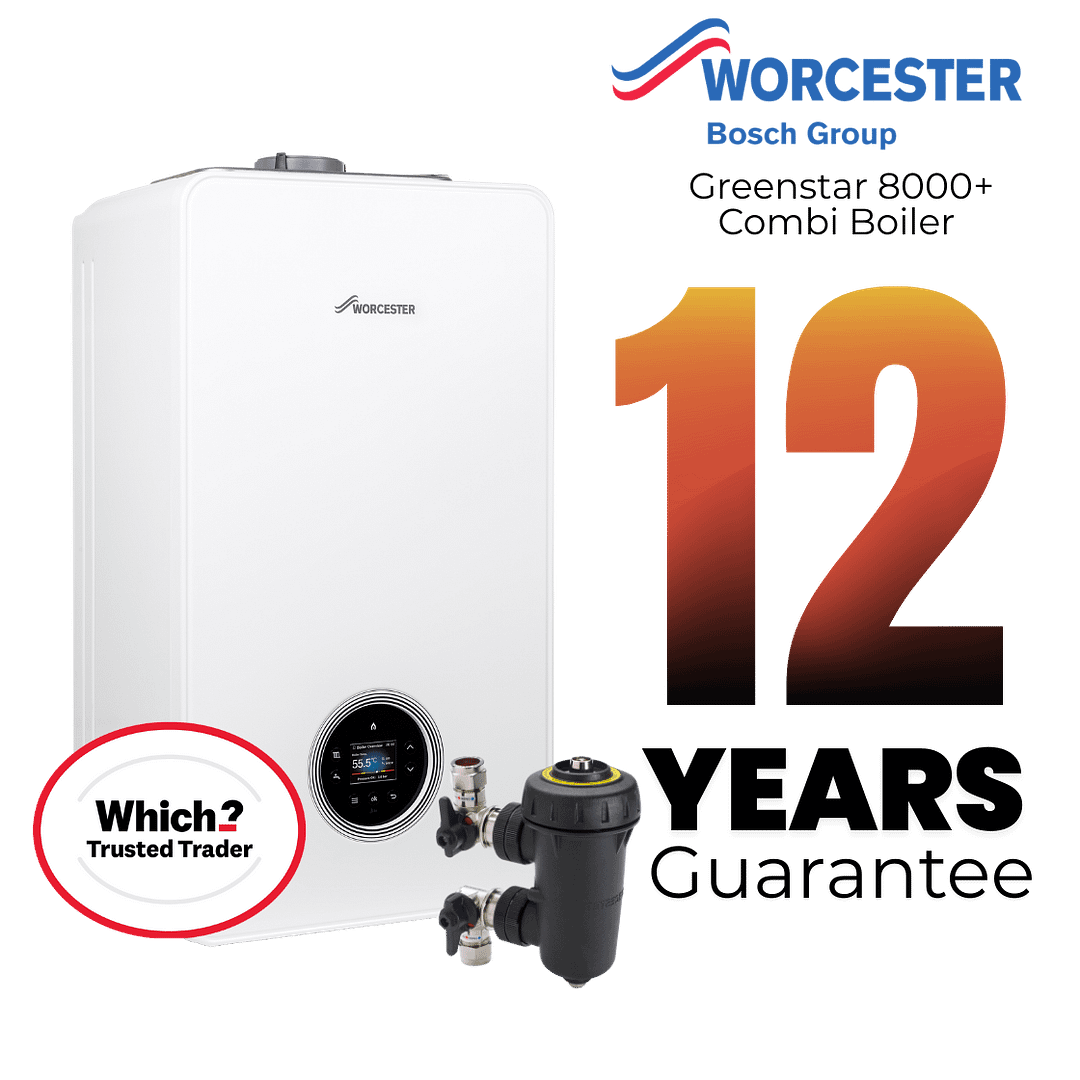
Supplied and fully installed combi boiler inc flue, control, cleansing & protection.
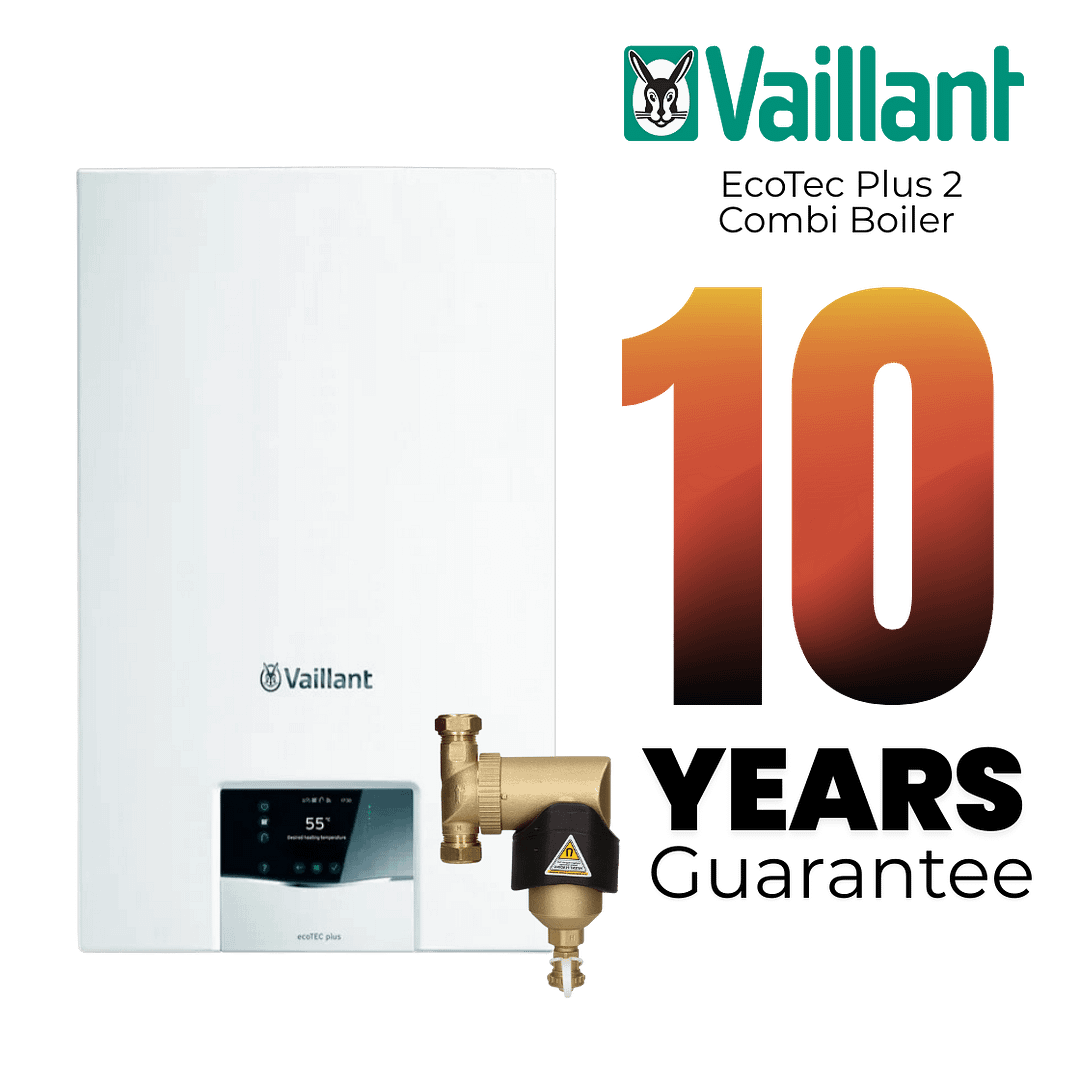
Supplied and fully installed system boiler inc flue, control, cleansing & protection.
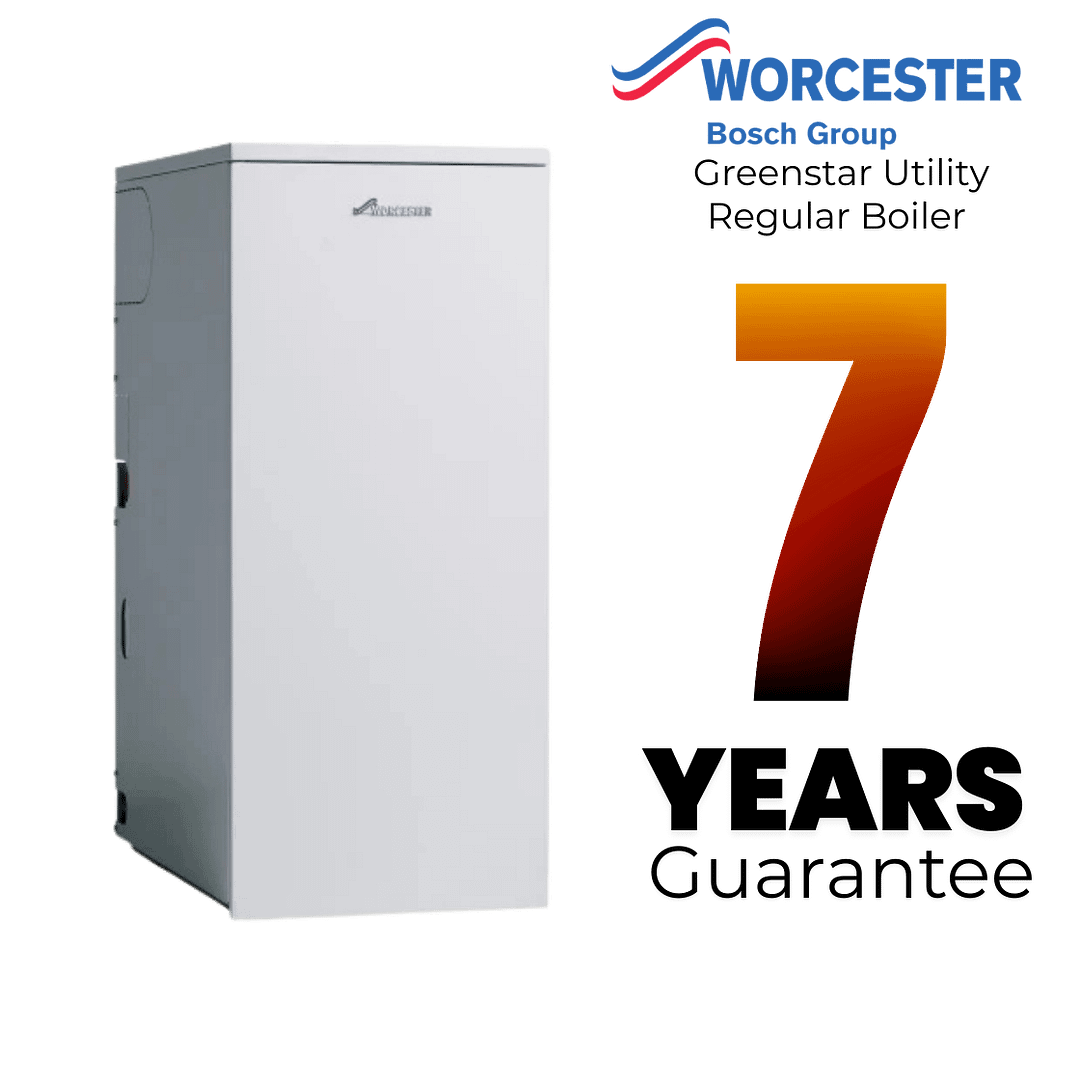
Supplied and fully installed regular boiler inc flue, control, cleansing & protection.
Everything you need to know, all in one place
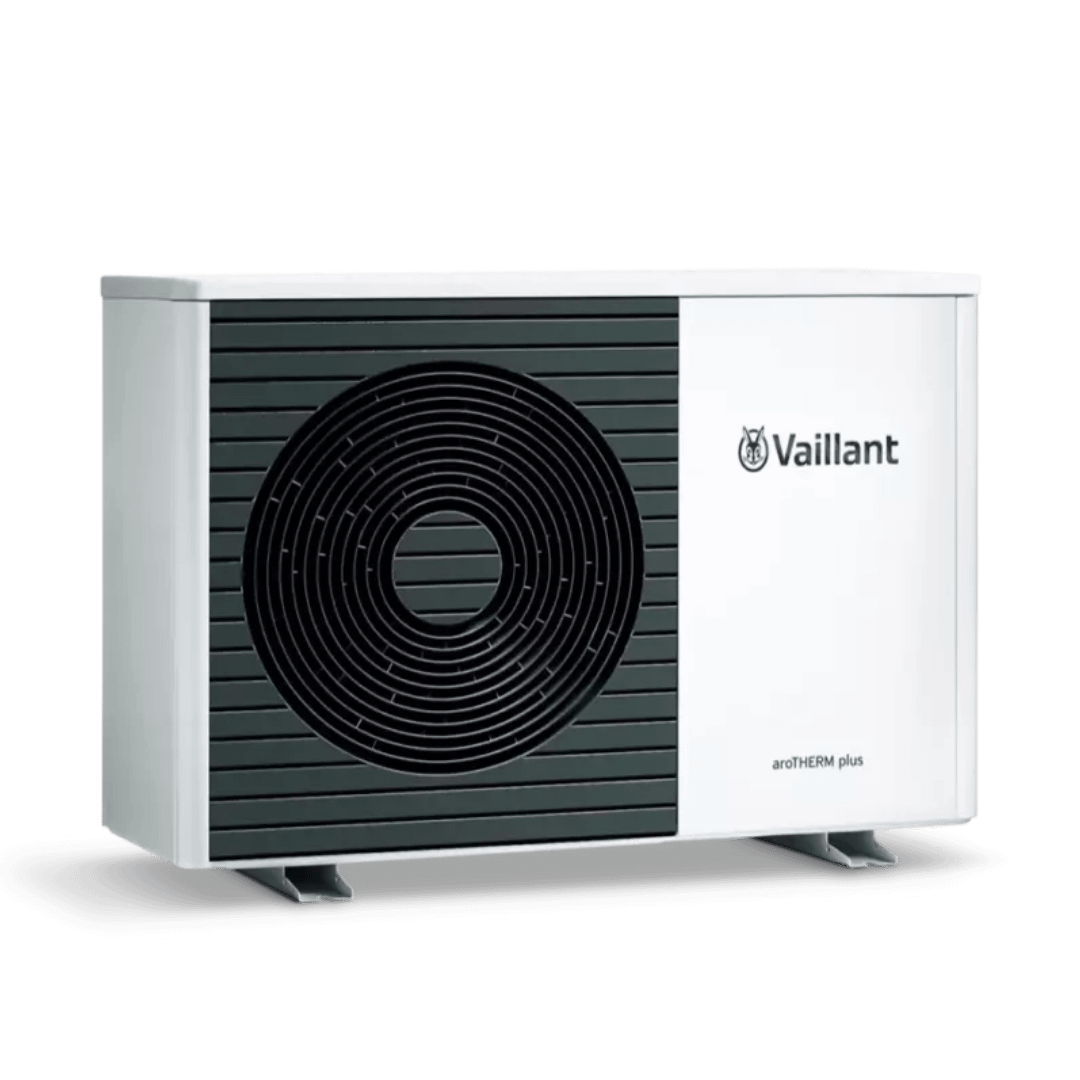
£7500 government grant Now available!
The Boiler Upgrade Scheme (BUS) is a great opportunity for homeowners and small businesses in the UK to reduce the upfront cost of installing eco-friendly heating systems. This government initiative offers £7,500 grants for air source and ground source heat pumps, making it easier to switch to low-carbon options. There’s also a £5,000 grant available for biomass boilers.
To take advantage of the scheme, all you need to do is work with an MCS-certified installer. They’ll apply for the grant on your behalf, so the savings are applied directly to your installation costs. The scheme is open to homeowners and small property owners in England and Wales and has been extended to run until 2028.
This initiative is designed to help you reduce your energy bills and your carbon footprint, making your home more sustainable in the long run.

£7500 government grant Now available!

Warming Swindon homes since 2008
When it comes to heating your home, the two most popular systems today are boilers and heat pumps. Both are designed to keep you warm but they work in very different ways.
If designed and installed correctly, a heat pump is the more eco-friendly option. It runs on electricity and extracts heat from the air (or ground), bringing it indoors to warm your home. Because it moves heat rather than generating it by burning fuel, it’s far more energy-efficient and environmentally friendly.
A boiler, by contrast, burns fossil fuels to heat water, which is then circulated through your home’s radiators or underfloor heating. While boilers have been a reliable heating option for decades, they do have a higher environmental impact compared to modern heat pump systems.
So which is the better choice? It depends on your home, your priorities, and how the system is designed. For an eco-friendly, energy-efficient solution, a heat pump is often ideal. For older or less insulated properties or those with higher heat demand, a boiler may still be the better fit.
At Centra Heat Swindon, we’re here to help you make the right choice. With our in-depth knowledge and Heat Geek accredited expertise, we’ll design the best system for your home so you can enjoy reliable, efficient heating all year round.
Air Source Heat Pumps (ASHPs) are a great energy-saving solution for your home. They pull heat from the outside air, even in cold weather, and bring it indoors to keep your space warm and cosy. They work efficiently in temperatures as low as -15°C, making them ideal for the UK’s chilly winters.
One of the big advantages of ASHPs is their efficiency. For every unit of electricity they use, they can generate up to three or four times that amount in heat. So not only will you stay warm, but you’ll also see savings on your energy bills.
To get the most out of an ASHP, it’s important that it’s installed correctly and that your home is well insulated. This ensures the system runs at its best, keeping you comfortable all year round.

£7500 government grant Now available!
The cost of running a heat pump depends on a few things, like the type of system, the size of your home, and local electricity rates. In general, Air Source Heat Pumps (ASHPs) are cheaper to install but might cost a little more to run than Ground Source Heat Pumps (GSHPs), especially when it’s really cold, as ASHPs have to work harder.
On average, you can expect an ASHP to cost between £500 to £1,000 per year to run, while a GSHP may cost between £400 to £700 per year, thanks to their higher efficiency. That said, both options can lead to big savings on your energy bills compared to traditional gas or oil heating, particularly if your home is well insulated.
The running costs are also influenced by the coefficient of performance (COP), which measures how efficiently your heat pump converts electricity into heat. The better the insulation and the more efficient the system, the more you’ll save in the long run.

£7500 government grant Now available!
Please note the quickest and best way to contact Centra Heat Swindon is via this form.
Phone : 01793 878 636
CentraHeat Heating & Plumbing Ltd
20 Cartwright Drive, Shaw, Swindon, SN5 5SB.
All the big Heat Pump questions answered below
The Boiler Upgrade Scheme (BUS) is a great opportunity for homeowners and small businesses in the UK to reduce the upfront cost of installing eco-friendly heating systems. This government initiative offers £7,500 grants for air source and ground source heat pumps, making it easier to switch to low-carbon options. There’s also a £5,000 grant available for biomass boilers.
To take advantage of the scheme, all you need to do is work with an MCS-certified installer. They’ll apply for the grant on your behalf, so the savings are applied directly to your installation costs. The scheme is open to homeowners and small property owners in England and Wales and has been extended to run until 2028.
This initiative is designed to help you reduce your energy bills and your carbon footprint, making your home more sustainable in the long run.
Applying for the Boiler Upgrade Scheme (BUS) is a straightforward process, and we’ll guide you through it step by step:
Find an MCS-Certified Installer: First off, you’ll need to choose an installer who’s registered with the Microgeneration Certification Scheme (MCS). Don’t worry, they’ll handle the paperwork!
Get a Quote: Your installer will come round, assess your property, and provide a quote for installing your new heat pump or biomass boiler. They’ll also check if you qualify for the grant.
Installer Applies for You: Once you’re happy with everything, the installer submits the grant application on your behalf through Ofgem. You don’t have to fill out any forms yourself.
Grant Applied to Your Costs: If approved, the £7,500 grant is deducted from the overall cost, so you pay less upfront.
Confirmation: Ofgem will get in touch with you to confirm you’re ready to proceed. Once everything’s confirmed, the installer gets started on your new eco-friendly heating system.
It’s a hassle-free process, making it easier and more affordable for you to switch to low-carbon heating.
Air Source Heat Pumps (ASHPs) are a great energy-saving solution for your home. They pull heat from the outside air, even in cold weather, and bring it indoors to keep your space warm and cosy. They work efficiently in temperatures as low as -15°C, making them ideal for the UK's chilly winters.
One of the big advantages of ASHPs is their efficiency. For every unit of electricity they use, they can generate up to three or four times that amount in heat. So not only will you stay warm, but you’ll also see savings on your energy bills.
To get the most out of an ASHP, it’s important that it’s installed correctly and that your home is well insulated. This ensures the system runs at its best, keeping you comfortable all year round.
The cost of running a heat pump depends on a few things, like the type of system, the size of your home, and local electricity rates. In general, Air Source Heat Pumps (ASHPs) are cheaper to install but might cost a little more to run than Ground Source Heat Pumps (GSHPs), especially when it’s really cold, as ASHPs have to work harder.
On average, you can expect an ASHP to cost between £500 to £1,000 per year to run, while a GSHP may cost between £400 to £700 per year, thanks to their higher efficiency. That said, both options can lead to big savings on your energy bills compared to traditional gas or oil heating, particularly if your home is well insulated.
The running costs are also influenced by the coefficient of performance (COP), which measures how efficiently your heat pump converts electricity into heat. The better the insulation and the more efficient the system, the more you’ll save in the long run.
When it comes to heat pumps, the main difference between Air Source Heat Pumps (ASHP) and Ground Source Heat Pumps (GSHP) is where they draw their heat from.
Air Source Heat Pumps grab heat from the air outside—even when it’s chilly—and use it to warm your home and water. They’re generally easier and cheaper to install, making them a popular choice. However, they can be a bit less efficient during those freezing winter days.
Ground Source Heat Pumps, on the other hand, pull heat from the ground through pipes buried underground. These systems are more efficient, especially in colder weather, but they need more space and can cost a bit more to install due to the digging involved.
Both are eco-friendly alternatives to traditional heating, helping you reduce your carbon footprint while keeping your home toasty.
When it comes to heating your home, there are some key differences between Air Source Heat Pumps (ASHPs) and traditional boilers.
Heat Generation: An ASHP pulls heat from the air outside—even when it’s cold—and transfers it into your home. Boilers, whether gas or oil, burn fuel to produce heat directly.
Efficiency: ASHPs are more efficient, often producing 3-4 units of heat for every unit of electricity used. Boilers, especially older ones, aren’t as efficient, converting less fuel into heat.
Running Costs: With proper insulation, ASHPs tend to be cheaper to run, whereas boilers come with higher fuel costs, depending on gas or oil prices.
Environmental Impact: ASHPs are the greener option, especially when powered by renewable energy, as they significantly reduce carbon emissions. Boilers, on the other hand, emit more CO₂, particularly those running on fossil fuels.
In short, ASHPs are a more eco-friendly and cost-effective choice in the long run, though they have higher upfront installation costs. Boilers are cheaper to install but will cost more to run over time, and they aren’t as environmentally friendly.
When choosing a heat pump, the key difference between air-to-water and air-to-air heat pumps is how they warm your home.
Air-to-Water Heat Pumps: These systems take heat from the air outside and transfer it into water, which is then used to heat your home through radiators or underfloor heating. They also provide hot water for your taps. If you already have a water-based central heating system, this is a great option. Plus, they work well in colder weather with the right insulation.
Air-to-Air Heat Pumps: Instead of using water, these units transfer heat directly from the outside air into warm air inside your home. They are ideal for homes without radiators and typically distribute heat through fans or ducts. As a bonus, they can also cool your home in the summer by reversing the process.
Efficiency and Cost: Both options are energy efficient. Air-to-water systems are more versatile since they handle both heating and hot water, while air-to-air systems are simpler and cheaper to install but only provide heating (or cooling in summer).
In short, if you need both heating and hot water, an air-to-water system is your best bet. For straightforward heating or cooling, an air-to-air system is a good, cost-effective choice.
Heat pumps, especially Air Source Heat Pumps (ASHPs), do create some noise, mainly from the external unit where the fan and compressor are located. On average, the noise is around 40 to 60 decibels—similar to the sound of a modern fridge or light rain. The exact noise level depends on the model, how it’s installed, and where it's placed.
While you may notice it when standing close to the unit, modern ASHPs are designed to be quieter. Many are installed away from bedrooms or living areas to minimise any disturbance. On the other hand, Ground Source Heat Pumps (GSHPs) are generally much quieter because most of the equipment is underground or indoors.
To reduce any potential noise, it's important to ensure the heat pump is installed in the right spot—away from windows or sensitive areas. Plus, all heat pumps must meet noise regulations, so you won’t have to worry about them being a nuisance in residential areas.
Air Source Heat Pumps (ASHPs) are a great energy-saving solution for your home. They pull heat from the outside air, even in cold weather, and bring it indoors to keep your space warm and cosy. They work efficiently in temperatures as low as -15°C, making them ideal for the UK’s chilly winters.
One of the big advantages of ASHPs is their efficiency. For every unit of electricity they use, they can generate up to three or four times that amount in heat. So not only will you stay warm, but you’ll also see savings on your energy bills.
To get the most out of an ASHP, it’s important that it’s installed correctly and that your home is well insulated. This ensures the system runs at its best, keeping you comfortable all year round.
Choose from local award winning energy saving heroes or Wiltshire based companies installing heat pumps across the UK.

£7500 government grant Now available!
Lorem ipsum dolor sit amet, consectetur adipiscing elit. Ut elit tellus, luctus nec ullamcorper mattis, pulvinar dapibus leo.
Lorem ipsum dolor sit amet, consectetur adipiscing elit. Ut elit tellus, luctus nec ullamcorper mattis, pulvinar dapibus leo.
Lorem ipsum dolor sit amet, consectetur adipiscing elit. Ut elit tellus, luctus nec ullamcorper mattis, pulvinar dapibus leo.
Lorem ipsum dolor sit amet, consectetur adipiscing elit. Ut elit tellus, luctus nec ullamcorper mattis, pulvinar dapibus leo.




CentraHeat Heating & Plumbing Ltd 20 Cartwright Drive, Shaw, Swindon, SN5 5SB.
© All Rights Reserved - CentraHeat Heating & Plumbing Ltd.